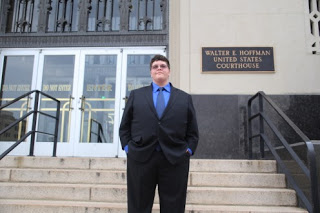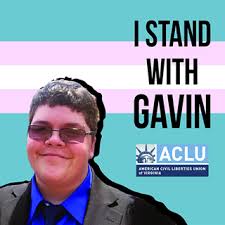Oregon Labor Commissioner Brad Avakian
bears a strong resemblance to Mikhail Gorbachev. That comparison is misleading:
There’s no reason to believe that the former Soviet ruler was ever as
passionately devoted to Communism as his doppelganger from the Beaver State.
Unlike Avakian, furthermore, Gorbachev conceded that there were limits to his
power, and eventually stopped trying to abolish property rights by decree.
Commissar Avakian has just gotten started on that mission.
Since 2008,
Avakian has afflicted Oregon business owners as chief commissar of the Bureau
of Labor and Industries (BOLI). Seeking to expand the compass of his power to
visit ruin on a state from which he should be exiled, Avakian is running for
the position of secretary of state.
As defined
by the state constitution and statutes, that occupant of that office is
little more than a glorified file clerk who administers public records,
supervises elections and notaries public, and sits on a couple of bureaucratic
panels. Avakian, who as BOLI commissar has made an art out of acting beyond his
brief, believes
that as secretary of state he would have the authority to audit private businesses,
establish “equal pay” guidelines by fiat, and impose
penalties on anybody who offends the canons of environmental correctness.
He has admitted
on at least one occasion that the things no Oregon secretary of state has
exercised the powers he describes, but blithely insists that “I think that’s a
mistake” – thereby casually confirming that his whims constitute the only law
to which he defers.
Not
surprisingly, Avakian’s neo-Leninism has endeared him to cultural
revolutionaries in Oregon, but has alarmed
what we might call the Menshevik
faction within the state’s Democratic Party. He may not survive the
May 17 primary; indeed, the last time he ran for a position other than BOLI
Commissioner was 2011, when he was buried in a race to fill a vacant
congressional seat.
Avakian’s
most ambitious project doesn’t require him to change jobs. His office is data-mining US
Census findings to create what he promises will be the “gold standard” index of
wage information correlated by “gender, race, and religion – all the protected
categories.” This information would be used to create an “action plan” to
end “wage disparity” in the labor market. And, of course, in addition to using
those findings to unleash litigation against employers in Oregon, “we’ll be
sharing it with other states” in order to propagate similar misery elsewhere in
the soyuz, Avakian boasted in a
recent campaign address.
It’s quite
likely that Avakian is using both his current office, and his campaign for Oregon
secretary of state, to audition for a position in a Hillary Clinton
administration. His resume is a bit thin, but his vaunting ambition and
bottomless self-regard – coupled with his limitless hostility toward less
enlightened human beings – might qualify him for a mid-level spot in the
Department of Labor.
 |
| They broke no law, but were ruined nonetheless: The Kleins. |
Although it
is an executive branch agency, the BOLI pretends to be a court, albeit one that
reflects the Soviet, rather than the American, legal tradition. The
Commissioner hires a cadre of prosecutors who present civil actions before an
administrative law judge, who is also supervised by the Commissioner.
The same Commissioner brings civil actions, in the agency’s name, against targeted businesses, so he is a party to every dispute that is brought before the “court” (or “forum,” as it is formally called). The administrative law judge then makes findings of fact, and issues an order directing remedial action and a punitive award. That order is then reviewed by the Commissioner, who can revise it as he sees fit – despite, once again, being a party to the dispute.
The same Commissioner brings civil actions, in the agency’s name, against targeted businesses, so he is a party to every dispute that is brought before the “court” (or “forum,” as it is formally called). The administrative law judge then makes findings of fact, and issues an order directing remedial action and a punitive award. That order is then reviewed by the Commissioner, who can revise it as he sees fit – despite, once again, being a party to the dispute.
Respondents
in BOLI actions do not enjoy the same due process rights that are afforded in both
criminal and civil trials. The administrative law judge in BOLI proceedings
does not have the authority to impose sanctions on the Commissioner or his
hired prosecutors in cases of misconduct.
All of this
explains why Aaron
and Melissa Klein, after being hit with a discrimination complaint in January
2013 for exercising their right to decline a business proposal, petitioned
to have the case tried in a district court, rather than in Avakian’s proprietary
Star Chamber. By the time the couple filed that motion, Avakian – who, recall,
is the final arbiter of the controversy – had publicly pre-judged the case by
openly stating that the couple, by refusing to create a wedding cake for a
same-sex ceremony not then legally recognized by the State of Oregon, had
committed an unlawful act of discrimination. He
also characterized them as thought criminals who needed to be “rehabilitated.”
Since that
motion was made before a forum Avakian controlled, it was denied, of course –
but it’s worth focusing for a moment on his use of the term “rehabilitated.”
In addition
to revealing the depth of Avakian’s totalitarian impulses, his use of that
clinical term demonstrates the poverty of the case against the Kleins. They had
supposedly injured the couple, Rachel and Laurel Bowman-Cryer, by declining to
take their money to create a wedding cake. If the lesbian couple were the injured party, why was it the supposed offenders who needed to be “rehabilitated”?
 |
| Sticks and stones may break your bones, but hurt feelings are really lucrative. |
During his testimony before the BOLI, Aaron Cryer, the brother of one of the supposed
victims, stated that “the whole reason of pursuing this case is … to change
[the] behaviors” of people like the Kleins, who subscribe to the pre-Obergfell
definition of marriage as a union between a biological man and a biological
woman. The ideologically motivated nature of the lawsuit against the Kleins was
made clear in Avakian’s public comments, and discussed in email and social
media conversations among the “victims” and their families early in 2013.
Those
conversations were subpoenaed by the defense during the discovery process, and
were among 109 pages of evidence withheld by the prosecution until practically
the eve of the “trial.” Chief prosecutor Jenn
Gaddis, lying with the practiced ease one expects from someone in her
position, pretended that this was an oversight. However, 20 of the 26 prosecution
exhibits drew from those 109 pages of long-withheld discovery evidence.
If this case
had been heard before a legitimate court – even in the People’s Republic of
Western Oregon -- that act of prosecutorial misconduct would have been
sufficient to have the complaint thrown out with prejudice.
The
614-page appeal contains extensive excerpts from the official record of the
case documenting that Avakian, working in collusion with a pressure group
called Basic Rights Oregon, misrepresented the state’s anti-discrimination law,
pre-judged the case prior to a hearing, exceeded his agency’s mandate, and
violated the constitutional rights of the Kleins by claiming that they were
required to participate in a ritual that violated their long-established and
deeply held religious beliefs. Their refusal to create a specific product
containing a message with which they disagreed was not a denial of “public
accommodations,” but the lawful exercise of their free speech rights – a distinction
that is recognized in the
controlling Supreme Court precedent.
The Kleins
were denied the opportunity to depose key witnesses. They were likewise not
permitted to follow up on a critical question that arose when they were tardily
provided with the suppressed 109 pages of discovery evidence: Why did Rachel,
in a January 17, 2013 email written immediately after Aaron Klein had declined
to make a wedding cake for the couple, claim that “This is twice in this
wedding process that we have faced this kind of bigotry.”
Had they
previously been turned down by another baker before seeking out the Kleins? Three
years earlier, the couple had bought a wedding cake from the Kleins for Rachel’s
mother, Cheryl McPherson. The Kleins, who knew that Rachel and Lauren were a
gay couple, happily and respectfully provided them with that service, because it did not involve expressing a message,
and participating in a ritual, to which they had moral objections. The
couple complied with anti-discrimination law by accommodating customers of all varieties, but they did
not offer products that were
incompatible with their Christian worldview.
Again, this
is a valid and legally recognized distinction, even under the prevailing
anti-discrimination regime. If Rachel and Lauren had been previously
stiff-armed by another baker, why didn’t they file a discrimination complaint
in that instance?
Another –
in my opinion, likelier – explanation is that the “bigotry” they describe was
displayed by a county clerk who refused to grant the couple a marriage license
because, once again, the State of Oregon at the time did not legally recognize
same-sex marriage. Aaron and Melissa Klein were aware of this. What Commissar
Avakian describes as “unlawful discrimination” by the Kleins was actually an
act in which they obeyed the law as it stood at the time.
“Oregon
state agencies, including BOLI, were and are places of public accommodation
[under state law],” notes the couple’s appeal. “Until May of 2014, county
clerks, acting as agents of the state, were openly denying marriage licenses to
same-sex couples because Oregon’s Constitution limited marriage to the union of
one man and one woman. Thus, it is evident that the state of Oregon itself
distinguished between same-sex marriage and sexual orientation” for the
purposes of public policy, just as the Kleins did for purposes of business
transactions.
“If BOLI now wants to take the contrary view and hold itself to the same standard it seeks to apply to Respondents, it must confess the state of Oregon engaged in official discrimination based on sexual orientation,” the appeal continues. This would mean either that the state officials who carried out that policy would be personally liable to pay restitution to the “victims” of that policy, or that the judgment against the Kleins must be vacated.
“If BOLI now wants to take the contrary view and hold itself to the same standard it seeks to apply to Respondents, it must confess the state of Oregon engaged in official discrimination based on sexual orientation,” the appeal continues. This would mean either that the state officials who carried out that policy would be personally liable to pay restitution to the “victims” of that policy, or that the judgment against the Kleins must be vacated.
Without using
the term, the Kleins’ appeal is describing a form of “entrapment by
estoppel,” a
defense arising when “a government official affirmatively assures the defendant
that certain conduct is legal” and the defendant acts on that assurance –
only to be prosecuted for the same conduct. Where this case differs from others
dealing with entrapment by estoppel (apart from the fact that it is a civil, rather
than criminal, matter) is that there was no existing law that defined what the
Kleins did as “unlawful discrimination.”
The BOLI,
which has no legislative authority, is in the habit of inventing “law” through
its own rulings – and then discarding those “laws” at the Commissioner’s whim.
This is demonstrated by the fact that Avakian
imposed a $135,000 penalty on the Kleins for a single act of supposedly
unlawful discrimination that occurred during a ten-minute conversation.
To palliate their hurt feelings, Rachel was awarded $75,000, Laurel the relative pittance of $60,000. Avakian had originally demanded $75,000 for each of them, but the administrative law judge, exercising a particle of discretion at a time when it did no material good, reduced Laurel’s award because she wasn’t actually in the room when Aaron Klein expressed his supposedly unlawful view of marriage.
To palliate their hurt feelings, Rachel was awarded $75,000, Laurel the relative pittance of $60,000. Avakian had originally demanded $75,000 for each of them, but the administrative law judge, exercising a particle of discretion at a time when it did no material good, reduced Laurel’s award because she wasn’t actually in the room when Aaron Klein expressed his supposedly unlawful view of marriage.
Avakian
pretends that this punitive award “is consistent with [BOLI’s] prior orders.”
The Kleins’ appeal points out that in a previous case the agency awarded
$50,000 to a victim who was “repeatedly assaulted and threatened with a
firearm,” and in another it awarded the same amount to a victim “who had been
punched in the head” and “sexually harassed” over a prolonged period.
Through
ideologically inspired capriciousness, Avakian concluded that hurting the
feelings of someone belonging to a “specially protected class” is a graver
offense than physically and sexually assaulting someone who doesn’t qualify for
that status.
The BOLI,
summarizes the Kleins’ appeal, invented a “novel interpretation” of Oregon’s
anti-discrimination statutes in order “to stamp out dissent to a new social
orthodoxy that embraces same-sex weddings….” As Aaron Cryer testified, that was
“the whole reason of pursuing this case.”
If Commisar
Avakian is elected Oregon’s secretary of state, he will give himself permission
to stamp out dissent of many other kinds. Since he has pledged to use that
office to battle “climate
change,” it’s reasonable to expect that he would enlist in ongoing
efforts to punish “climate deniers,” for example. He has no opponent in his
re-election campaign for Labor Commissioner, and he would continue to
aggrandize himself, and the powers of that office, until and unless Oregon’s
long-suffering business owners do whatever is necessary to lance the BOLI boil.
UPDATE:
The day after this piece was published, The Oregonian -- a progressive newspaper that previously condemned Avakian for his "fascistic gag order" in the Sweetcakes case -- took a pin to the commissar's grotesquely inflated self-image:
"Voters would be understandably confused if they thought Brad Avakian was running not for secretary of state, but rather for governor, attorney general or perhaps a new post of progressive superhero....
The problem is that Avakian has already shown he is willing to misuse his power in order to further causes that he believes in. As labor commissioner, he oversaw a discrimination case against a Christian bakery that refused to bake a wedding cake for a lesbian couple. While he rightfully found that the bakery's owners, Aaron and Melissa Klein, had violated state law prohibiting such discrimination, he didn't stop there. Instead, he declared that the bakery owners had also violated a separate law that prohibits businesses from advertising an intent to discriminate. Among the offending statements was an interview Aaron Klein gave to a reporter in which he recounted the conversation he had with the would-be customer....
Avakian's oversized ambitions for the office are worrisome on their own. But he has the full support of several organizations that appear to embrace his concept of an activist-elected official in a position unsuited for such partisan advocacy.... When choosing a secretary of state, Oregonians should favor the candidate who is best suited to do the job he or she seeks — not the one who promises to push it in new and ideologically freighted directions for political gain."
UPDATE:
The day after this piece was published, The Oregonian -- a progressive newspaper that previously condemned Avakian for his "fascistic gag order" in the Sweetcakes case -- took a pin to the commissar's grotesquely inflated self-image:
"Voters would be understandably confused if they thought Brad Avakian was running not for secretary of state, but rather for governor, attorney general or perhaps a new post of progressive superhero....
The problem is that Avakian has already shown he is willing to misuse his power in order to further causes that he believes in. As labor commissioner, he oversaw a discrimination case against a Christian bakery that refused to bake a wedding cake for a lesbian couple. While he rightfully found that the bakery's owners, Aaron and Melissa Klein, had violated state law prohibiting such discrimination, he didn't stop there. Instead, he declared that the bakery owners had also violated a separate law that prohibits businesses from advertising an intent to discriminate. Among the offending statements was an interview Aaron Klein gave to a reporter in which he recounted the conversation he had with the would-be customer....
Avakian's oversized ambitions for the office are worrisome on their own. But he has the full support of several organizations that appear to embrace his concept of an activist-elected official in a position unsuited for such partisan advocacy.... When choosing a secretary of state, Oregonians should favor the candidate who is best suited to do the job he or she seeks — not the one who promises to push it in new and ideologically freighted directions for political gain."
This week on Freedom Zealot Radio --
Social Justice Warriors who seek to "reform" less enlightened people through coercion should remember that the "Who" and the "Whom" will eventually trade places -- which is why the "What" is the most important consideration:
Dum spiro, pugno!




